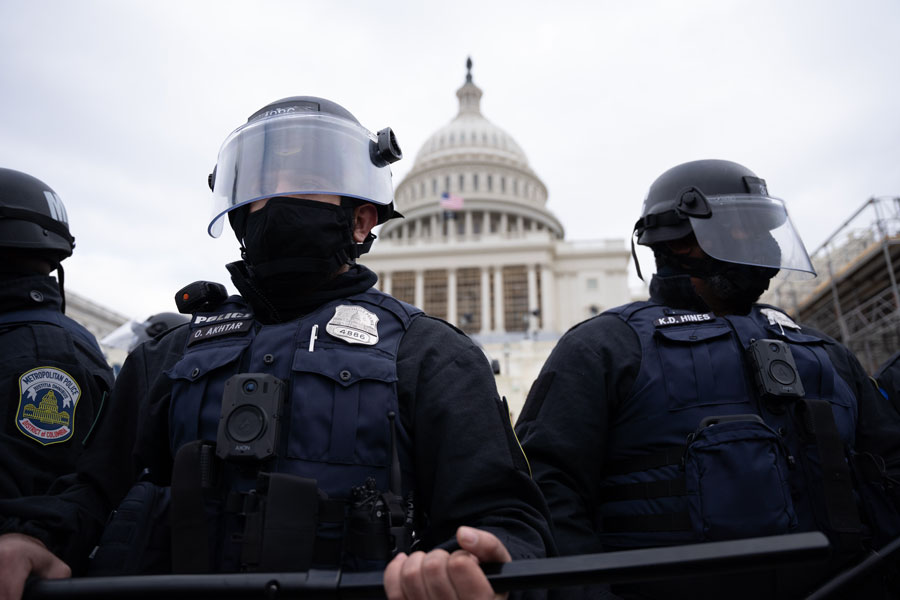Fourth Capitol Police Officer Dies by Suicide After Jan. 6 U.S. Capitol Riots

To date, four police officers who had responded to the January 6 riots at the U.S. Capitol have died by what appears to be suicide, including two officers whose recent passing was confirmed by a spokesperson for the Washington’s Metropolitan Police Department (MPD).
According to police spokesperson Officer Hugh Carew, a police spokesperson, Officer Gunther Hashida, who was an 18-year veteran on the force and part of the department’s Special Operations Division Emergency Response Team, was discovered dead in his home on Thursday.
Shortly after the tragic announcement, House Speaker Nancy Pelosi issued a statement lamenting the passing of Officer Hashida, who had responded to the Capitol riots on January 6.
“Officer Hashida was a hero, who risked his life to save our Capitol, the Congressional community and our very Democracy,” she said. “All Americans are indebted to him for his great valor and patriotism on January 6th and throughout his selfless service.”
Later the same day, an MPD spokesperson also confirmed the July death by suicide of Officer Kyle DeFreytag, who had been with the department since 2016 and was also confirmed to have responded to the January 6 riots, after which he was tasked with curfew enforcement at the Capitol.
“Officer Kyle DeFreytag, assigned to the Fifth District, was found deceased on Saturday, July 10, 2021,” the spokesperson said.
Counting DeFreytag’s and Hashida’s deaths, there have now been a total of four police officers who had served at the U.S. Capitol during the riots who have taken their own lives in the wake of the incident, which saw supporters of former President Donald Trump storm the building on January 6 in an attempt to prevent the certification of the 2020 presidential election results.
The other two responding officers who had previously committed suicide were 15-year Capitol Police Department (CPD) veteran Officer Howard Liebengood, and 12-year MPD vet Officer Jeffrey Smith, both of which took their lives just days after the riots.
A fifth death of a member of law enforcement who responded to the Capitol riots, CPD Officer Brian Sicknick, died of natural causes one day after they took place.
Many wonder what drove four officers, tied together by a very specific set of circumstances, to end their lives; some have speculated that they may have been driven to do so by Post-Traumatic Stress Syndrome (PTSD) suffered during the riots.
Last Tuesday, four officers who had defended the Capitol testified at a Congressional committee that is investigating the incident, and all relayed tales of intense stress and fear that they said they carry with them to this day, including CPD Sgt. Aquilino Gonell.
“For most people, January 6 happened for a few hours,” he said. “But for those of us who were in the thick of it, it has not ended.”
Likewise, Officer Michael Fanone of the MPD stated that the clashes he and his fellow officers had with rioters that day were “nothing short of brutal” and he lashed out at members of Congress who have been, in his words, “downplaying or outright denying what happened” that day, saying, “I feel like I went to hell and back to protect them.”
CPD Officer Harry Dunn also testified he was called “racial slurs” and physically attacked by the rioters, and has required counseling due to emotional trauma.



Comments are closed.